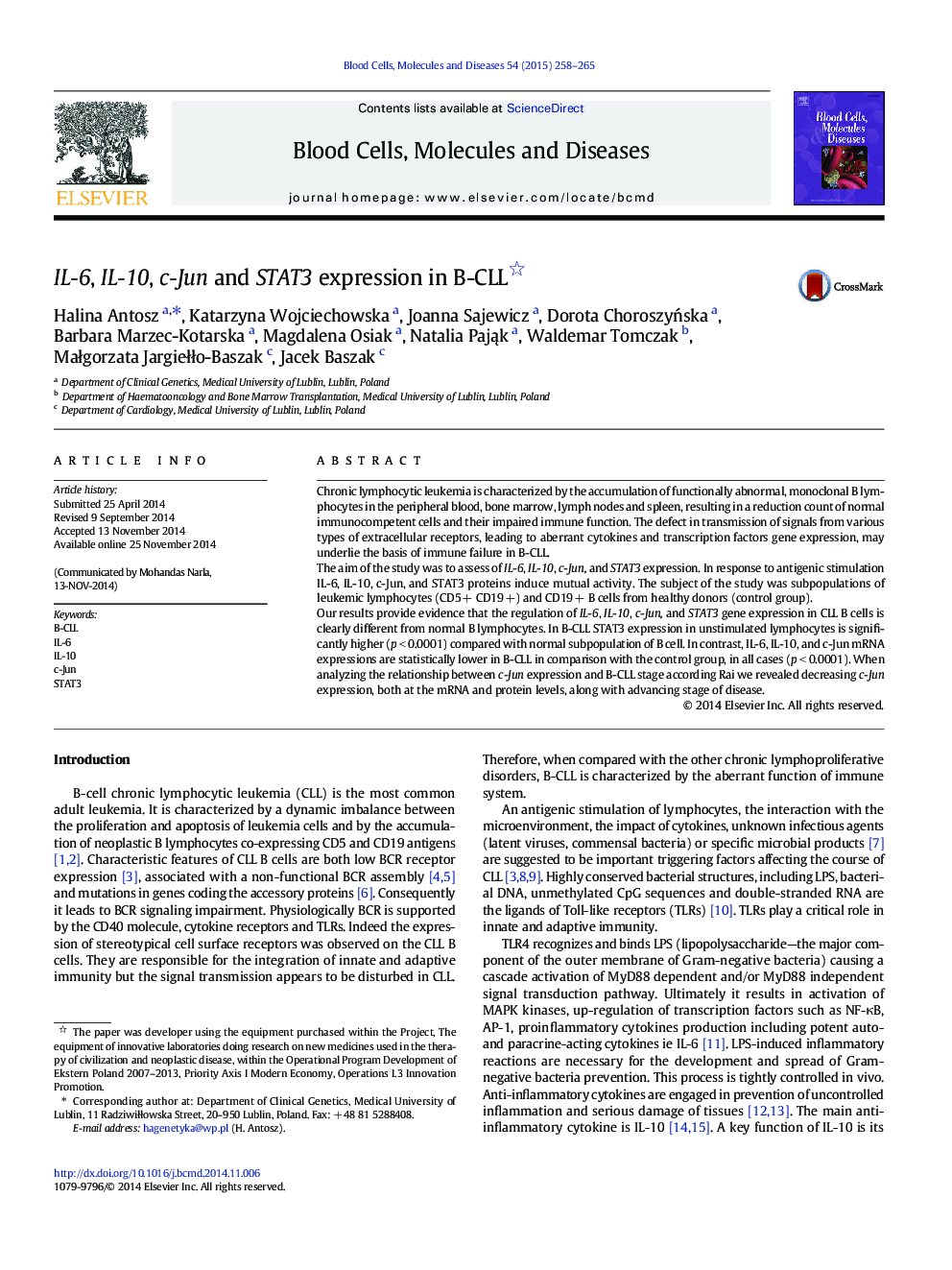| کد مقاله | کد نشریه | سال انتشار | مقاله انگلیسی | نسخه تمام متن |
|---|---|---|---|---|
| 2827215 | 1162426 | 2015 | 8 صفحه PDF | دانلود رایگان |

Chronic lymphocytic leukemia is characterized by the accumulation of functionally abnormal, monoclonal B lymphocytes in the peripheral blood, bone marrow, lymph nodes and spleen, resulting in a reduction count of normal immunocompetent cells and their impaired immune function. The defect in transmission of signals from various types of extracellular receptors, leading to aberrant cytokines and transcription factors gene expression, may underlie the basis of immune failure in B-CLL.The aim of the study was to assess of IL-6, IL-10, c-Jun, and STAT3 expression. In response to antigenic stimulation IL-6, IL-10, c-Jun, and STAT3 proteins induce mutual activity. The subject of the study was subpopulations of leukemic lymphocytes (CD5 + CD19 +) and CD19 + B cells from healthy donors (control group).Our results provide evidence that the regulation of IL-6, IL-10, c-Jun, and STAT3 gene expression in CLL B cells is clearly different from normal B lymphocytes. In B-CLL STAT3 expression in unstimulated lymphocytes is significantly higher (p < 0.0001) compared with normal subpopulation of B cell. In contrast, IL-6, IL-10, and c-Jun mRNA expressions are statistically lower in B-CLL in comparison with the control group, in all cases (p < 0.0001). When analyzing the relationship between c-Jun expression and B-CLL stage according Rai we revealed decreasing c-Jun expression, both at the mRNA and protein levels, along with advancing stage of disease.
Journal: Blood Cells, Molecules, and Diseases - Volume 54, Issue 3, March 2015, Pages 258–265